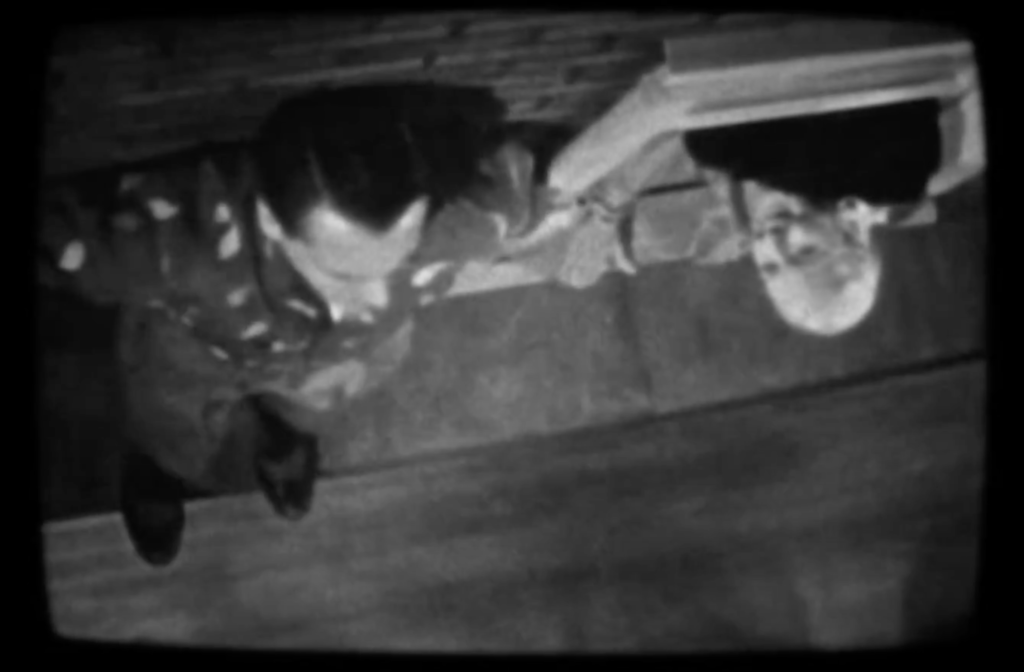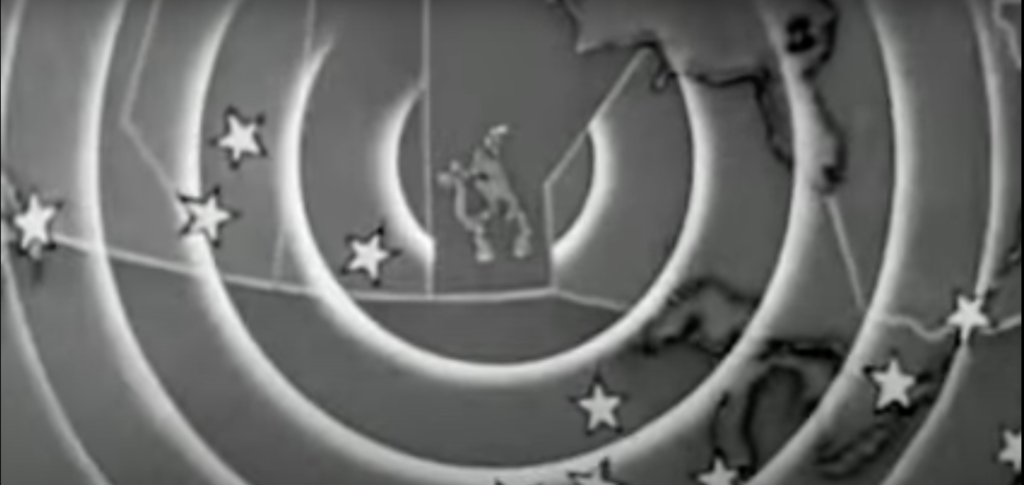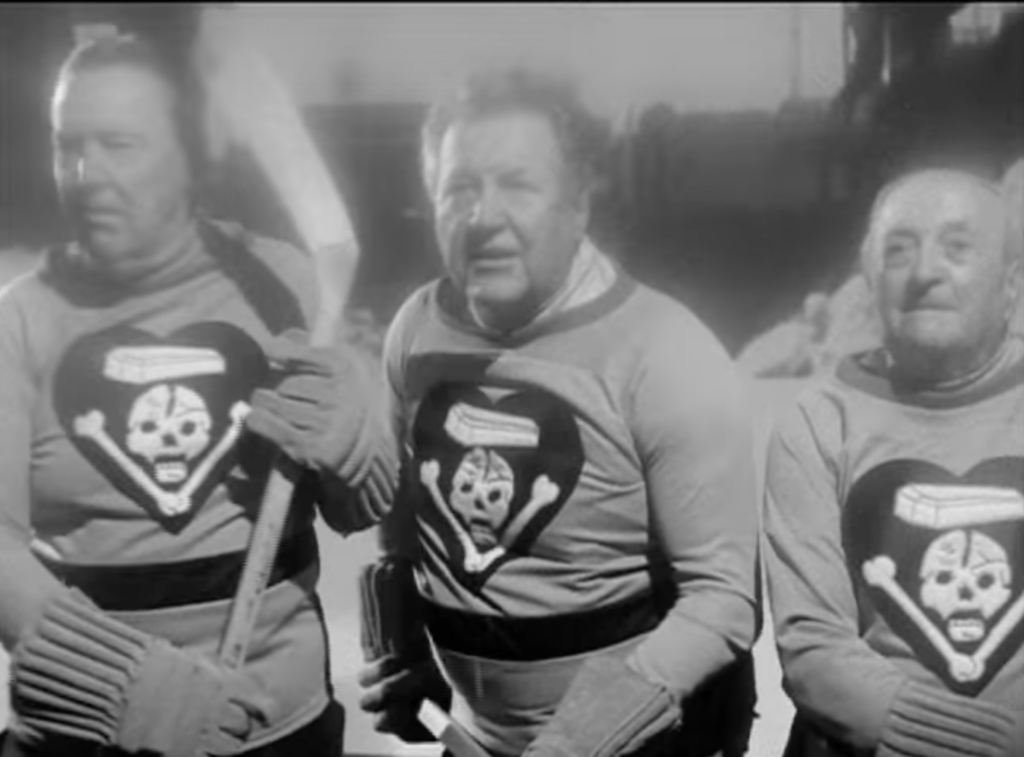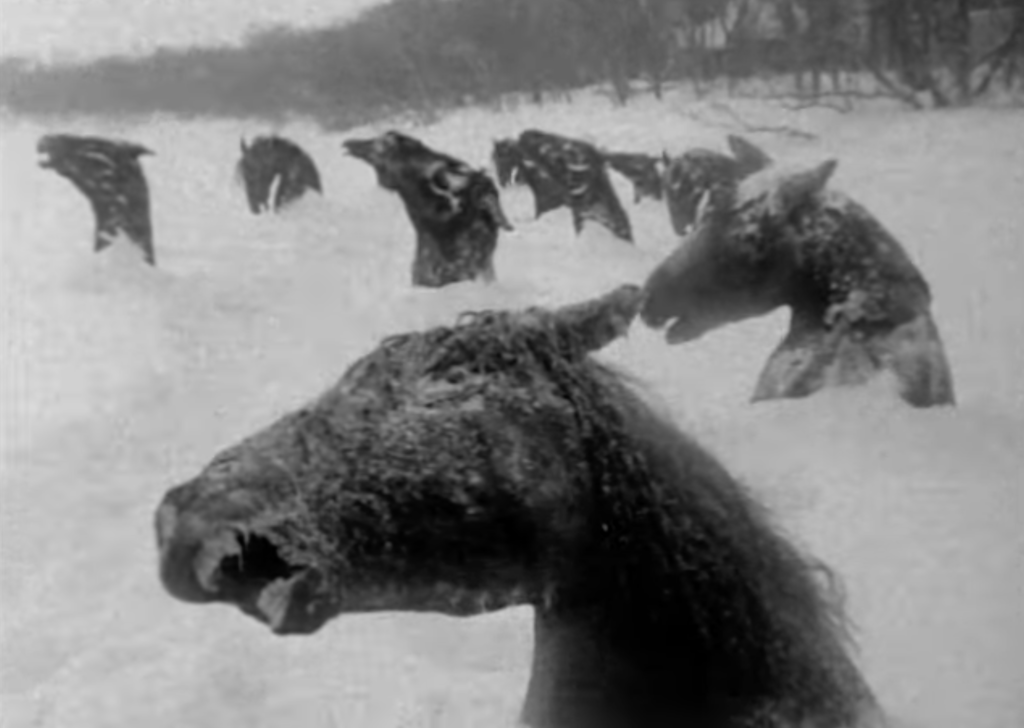“I guess in spite of myself I’m kind of slightly patriotic.”
Last night I watched My Winnipeg for the first time, a little late to the party I suppose since the film was initially released in 2007. I remember attempting to watch it once one night, stoned out of my gourd and I only made it about fifteen minutes in. I couldn’t tell if it was the dope or the dialogue that had me off my rocker so I bailed and fled to some more comfortable programming. Those first fifteen minutes always stuck with me however. For at least a decade or more now. Enough so that I felt the need to return again to it at some point, maybe with more life experience and experimental films under my belt so that I may be able to match this daring crack at the mockumentary genre.
Although you could hardly call this film a mockumentary, it’s much more than that. It strains film students vocabularies for a proper genre description. The director himself admittedly coined a million terms in an attempt to bury the word mockumentray. Written, directed and narrated by Guy Maddin, one gets to peer into into a life so convincingly told that it begins to feel as if it’s your own. But I’m not sure what to call it so I will just go straight to the horse’s mouth and go with Maddin’s description It’s a ‘docu-fantasia.’
One that combines, “personal history, civic tragedy, and mystical hypothesizing.” I’m not sure if that description would make the film’s premise any more clear to someone, but just as well, all the more reason to watch it.

The film tells the story of a man who is attempting to leave his hometown of Winnipeg once and for all, however he must first tie up some loose ends. Loose ends regarding his own subconscious, childhood memories and his personal gripes with the civic decisions of his fair city. It’s a love hate affair and believe me, you the viewer are merely along for the ride.
Stylistically reminiscent of Oliver Stone’s Natural Born Killers, the viewer is blasted from one scene to the next. The quick flash frames are broken up with an excellent use of title cards, another clever editing decision that leaves the viewer ever-confused as to the time period that they are in.
Maddin rents out his old childhood home where he grew up and has actors play his family members in an experiment to play out some of his life’s significant memories and experiences so that he may make peace with them.
Amidst this melodrama is infused folklore, myth, truth and deceit about the history and local colour of his dear Winnipeg.
While reflecting on his beginnings as a filmmaker in an interview with The Seventh Art, Maddin said, “When I first started out I made a point with my very first film of not setting it in Canada. The idea of just making something so specifically of a place that it becomes universal never occurred to me. The idea of making Dubliners, something where everything is set in Winnipeg. or like a neighbourhood in Winnipeg; Transcona, in Winnipeg. That you could actually make stories that are so specifically about that neighbourhood that they become universal didn’t even occur to me so I just went of my way to make it anywhere, my first movie.”
This is certainly is no longer the case.

One thing that keeps the viewer on their toes is the constant zig-zag path through lies and the truth. It’s hard to know just what historical facts about the city of Winnipeg are real or not. Of course some are obviously a bit far fetched, such as the city’s bylaw regarding the onslaught of sleepwalking citizens. Maddin claims Winnipeg to be the sleepwalking capital of the world, dealing with more than ten times the rate of the problem elsewhere. Maddin’s narration goes on to explain that everyone in Winnipeg carries with them the keys to their previous homes just in case they return to them while in a sleepwalking trance. The Winnipeg bylaw states that anyone who shows up at their old home is allowed to spend the night sleeping there by law, despite the new tenants comfortability. Of course it’s the far more outlandish anecdotes that one hopes are true.
Maddin also tells us the story of the annual Winnipeg treasure hunt that is sponsored by the Canadian Pacific Railway which has locals combing the streets all day long in order to track down clues as to where the treasure may be. The first prize is a one-way ticket leaving Winnipeg on the next train; however in the end, no one ever claims it. Not in a hundred years has anyone ever taken up the prize because they always come to fall in love with Winnipeg in the process of the treasure hunt.
There are far more than just those two tall tales in the film of course, everything from secret seances to triple decker swimming pools can be found in this audacious exploration into film and memoir.

My Winnipeg is the kind of film likely to melt the brain of a young film lover or even an old one. To say the film is unique is an understatement, just as attempting to categorize it can become a laborious task. The film’s runtime is short yet it’s packed to the gills with the patchy memory of both an individual and a city in its modest eighty minutes. It’s amazing that Maddin manages to make you fall in love with the very place he is trying to escape.
The pacing of this flick may just send your eyeballs into an epileptic shock but trust me, it’s worth the risk.
